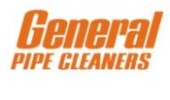
Ontario Engineers ask Province to address air quality before students return to school
February 5, 2021 | By HPAC Magazine
“While investments like the Ontario Together Fund to develop new technologies are welcome, we need a transparent plan to prioritize and conduct upgrades to heating, ventilation and air conditioning (HVAC) systems in schools now.”

(Getty Images)
With students preparing to return to classrooms across Ontario, the Ontario Society of Professional Engineers (OSPE) has issued a statement calling on the provincial government to immediately address the airborne transmission of COVID-19.
OSPE believes the need for proper ventilation to stop the spread of infected aerosol particles is not being properly addressed.
“Ontario engineers are concerned about the health and well-being of students, and the lack of attention to air quality by the provincial government,” said Sandro Perruzza, CEO of OSPE. “While investments like the Ontario Together Fund to develop new technologies are welcome, we need a transparent plan to prioritize and conduct upgrades to heating, ventilation and air conditioning (HVAC) systems in schools now.”
OSPE is calling on the Ontario government to take the following immediate actions:
- Determine which schools require priority HVAC systems assessments
- Commit more funding to ventilation improvements
- Hire professional engineers to do this work now
OSPE’s President & Chair, Réjeanne Aimey, P.Eng., says government must take steps now to prevent future outbreaks. “As engineers, we have always known there is a connection between ventilation systems and our health, but it has taken a global pandemic to shine light on this issue. We are urging government to properly invest in protecting our children – allocating $50 million of federal support is inadequate,” she said.
In colder weather many HVAC systems in public and commercial spaces re-circulate air instead of funneling fresh air in. As a result, HVAC systems recycle the same potentially infected air. Engineers believe that this could be contributing to airborne transmission of COVID-19 in buildings such as warehouses and long-term care facilities, as well as other indoor spaces.
“This is bigger than COVID-19 – Indoor Air Quality (IAQ) affects how many sick days we take off of work, how happy we are, and how long we live,” said Brian Fleck, professional engineer and professor at the University of Alberta who, along with a team of medical scientists and engineers, is studying ventilation and how it impacts the transmission of the virus. “We have the opportunity now to make the air in the buildings where we live and work cleaner than the air outside. We just have to make that investment; the costs are small compared to the benefits we will reap in finance, health and wellness.”
OSPE is calling on the Ontario government to consult with engineers, scientists, HVAC specialists and other experts immediately to adequately address this issue before more outbreaks occur.




